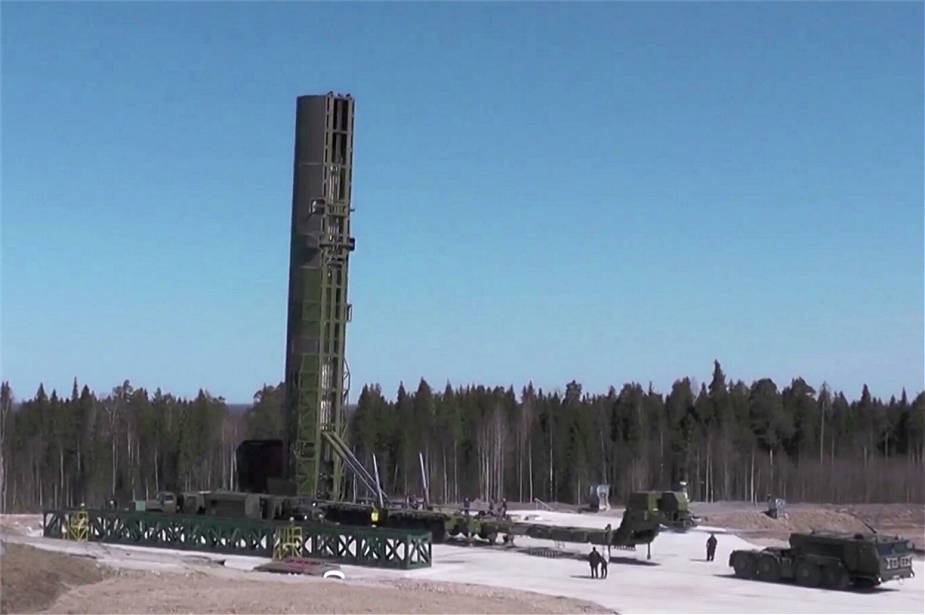Breaking news
Russian armed forces plan to deploy RS-28 SARMAT ICBM missiles in 2022.
According to information published by Russian press agencies on August 6, 2021, Russia will start soon test flights of its new RS-28 SARMAT intercontinental ballistic missile which is under development by the Russian company Makeyev Rocket Design Bureau since 2009. The Russian armed forces plan to deploy SARMAT missiles in 2022.
Follow Army Recognition on Google News at this link

The new RS-28 SARMAT ICBM missile will be able to reach a target at a maximum range of 18,000 km. (Picture source TASS)
In June, Krasmash CEO Alexander Gavrilov told the Russian press agency TASS that flight development tests of the missile were scheduled for the third quarter of 2021. It was reported that Sarmat is to be accepted into service this year. Strategic Missile Forces Commander Colonel-General Sergey Karakaev said in 2018 the ICBM would be supplied to a regiment of Uzhur strategic division.
The RS-25 SARMAT will be the main silo-based ICBM (InterContinental Ballistic Missile) in Russia. The Russian Strategic Missile Forces do not have to build new silos for it, as RS-28 will be adapted to the existing ones.
The SARMAT RS-28 is powered by the latest RS-99 engines, which are a deep upgrade of RD-263 power plant. The increased thrust of RS-99 engine decreases the time of the active stage of the flight and thus complicates the operation of hostile missile defense. The RS-99 power plant accelerates Sarmat to a speed that is slightly slower than required for the orbiting of the throw weight.
The RS-28 SARMAT will be capable of carrying about 10 tones of payload for either up to 10 heavy or 15 light MIRV warheads, an unspecified number of Avangard hypersonic glide vehicles (HGVs) or a combination of warheads and massive amounts of counter-measures against anti-ballistic missile systems.
According to Russian military sources, the RS-28 SARMAT missile will have an operational firing range of 18,000 km and can fly at a maximum speed of Mach 20.6 (25,560 km/h).


























